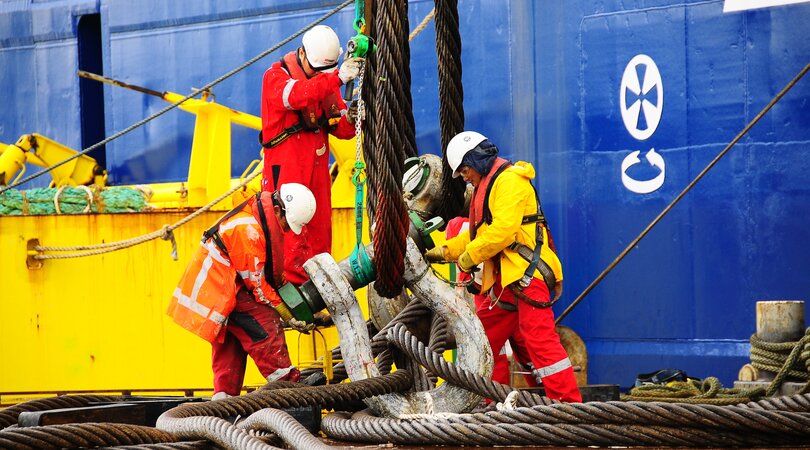Our new NorthStandard site is now live. There will be no new content or updates added to this site. For the latest information, please visit our new site north-standard.com.
Press article: Keep up seafarer wellbeing initiatives
Conditions onboard are improving and a greater focus on seafarer wellbeing has delivered results, but the industry should not turn back the clock as the covid crisis has receded, writes Captain Yves Vandenborn, Director of Loss Prevention at Standard Club.

Collins Dictionary has declared “permacrisis” its phrase of 2022. It sums up the year for many: economic setbacks, war, environmental disasters, covid and political instability. These issues are challenging for anyone, but for a seafarer, a long way from home or family, we can potentially add loneliness, overwork and stress to the list of concerns.
The pandemic and lockdowns taught us all the importance of emotional wellbeing. Governments, employers and communities globally recognised the negative impact of isolation on people in their care. Programmes focused on improving personal wellbeing grew quickly and discussions about mental health, which for many had previously been taboo, became more common.
Wellbeing does not just refer to a person’s physical health. It includes relationships, emotions and finances, which when not going well, can be a source of stress and unhappiness. But within a complex and dangerous environment such as a ship at sea, the work itself can also be highly stressful.
Far from home seafarers can easily become overwhelmed. Extended time at sea due to covid restrictions exacerbated these existing trends. Many shipping companies responded by trying to make time at sea a better experience than before. Genuine attempts were made to foster a better sense of community and improve onboard conditions. Whether this was reimagining living spaces onboard to create an inclusive and collaborative environment with community mess halls and recreation lounges; adding gyms and fitness activities; increasing the ease of internet connectivity and access to home or improving dialogue with management, we saw a wide range of initiatives being implemented.
Those companies who view “wellbeing” as just an additional crew cost and have failed to take meaningful action, are finding that they are much less likely to attract the best and most experienced seafarers. Seafarers are becoming increasingly selective about who they work for and are basing their decisions as to who to sail with on the benefits as well as the salary package.
Standard Club has partnered with the maritime charity Mission to Seafarers, and IDWAL, a global leader in vessel inspections, benchmarking and analysis and published a quarterly Seafarers Happiness Index to help measure how seafarers are coping. Covering 10 questions focusing on respondents’ perception of their happiness on issues including shore leave, onboard connectivity, training, wages, food, workload and onshore facilities, the index has shown that there have been improvements over the past two years. Crew are feeling happier. The average rating for happiness in Q3 2022 was 7.3, up from 6.3 at the height of the pandemic in mid-2020.
Access to shore leave does however remain problematic and continues to be a source of unhappiness. Whilst the situation has clearly dramatically improved with most countries removing the blanket ban on shore leave, there are still restrictions in place in some regions. Some crew however are not able to take shore leave due to overwhelming workloads, cost, bureaucratic restrictions, company policy or personal choice.
Whilst I am delighted to see progress in the way that seafarers are treated, there are concerns that as the immediate Covid crisis has diminished, so will the focus on seafarer living conditions and wellbeing. Critical to all these initiatives is the level of work expected of the seafarer. This is linked to manning levels which have continued to be under pressure. Seafarers are the backbone of the maritime industry and global trade and have, rightly so, been recognised as key workers. The work we do to help them through supportive company cultures must continue.
Category: Loss Prevention
